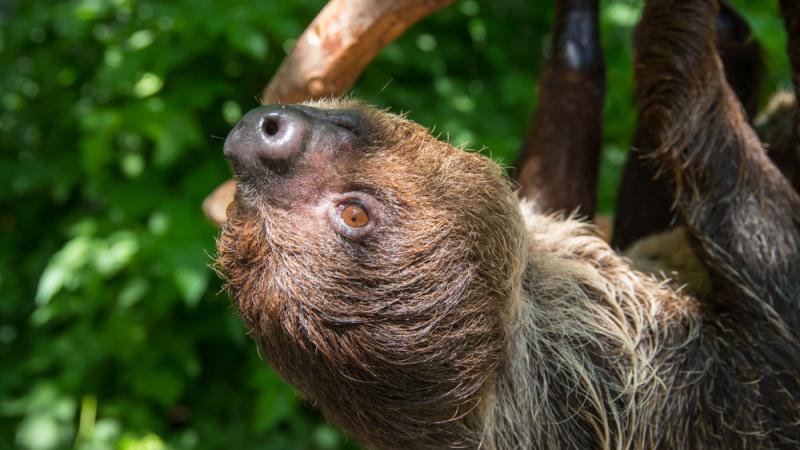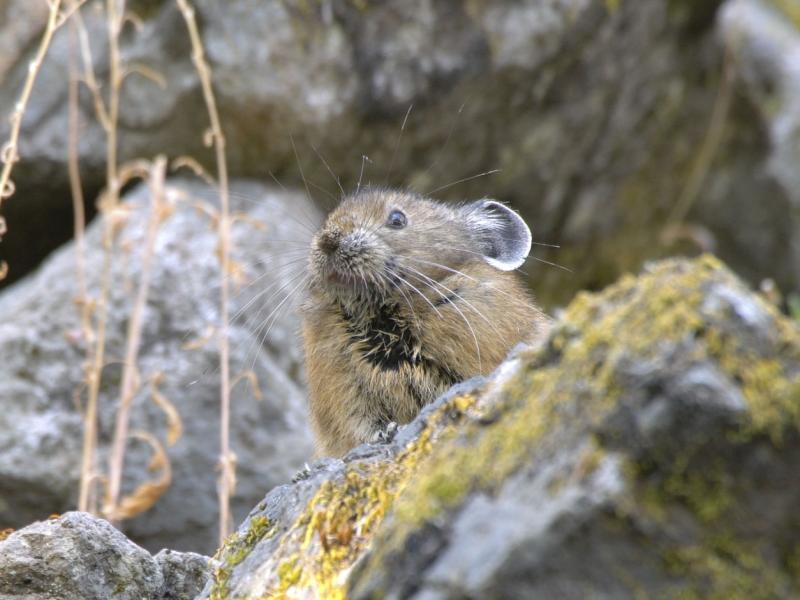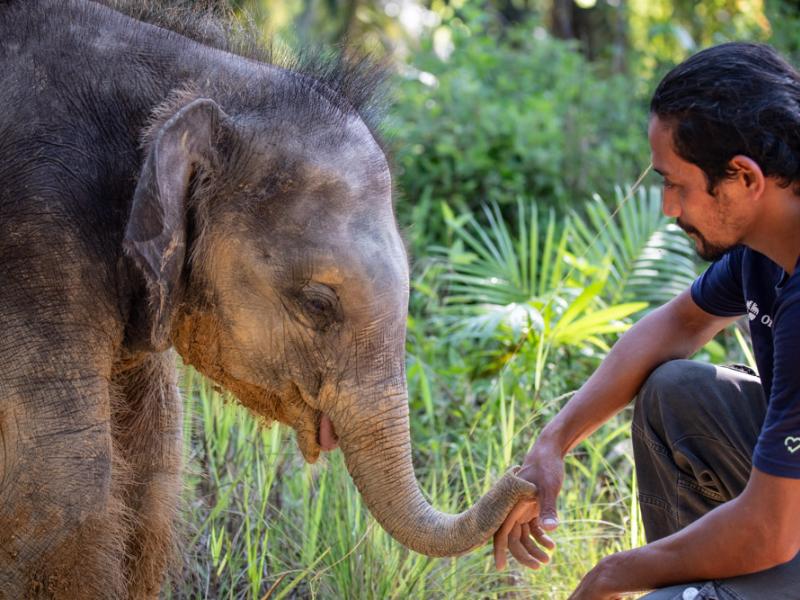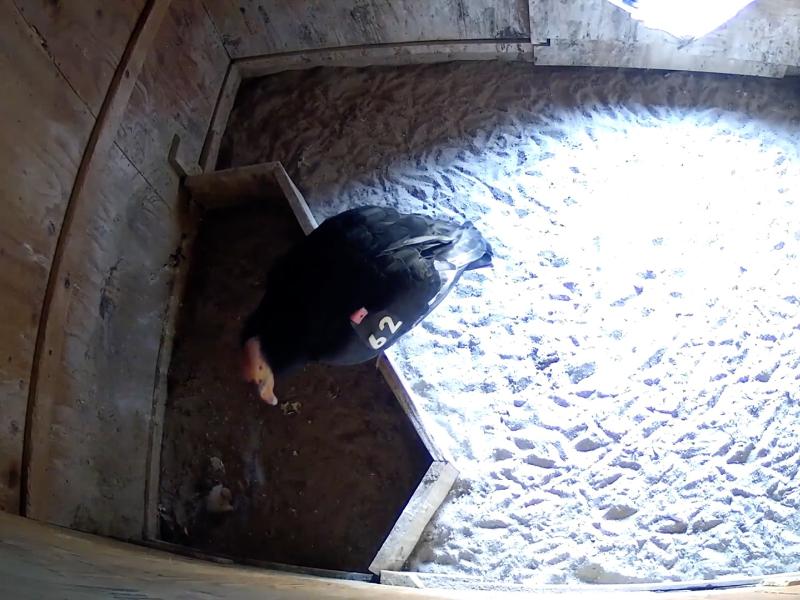Josie the sloth helps her fans protect wildlife

Sloths rarely vocalize, unless you count crunching. Josie, a Linnaeus two-toed sloth who lives at the Oregon Zoo, can often be heard crunching on apples, her favorite snack. But her life hasn't always been sweet.
Josie was taken from the wild and sold into the exotic pet trade. She was adopted by a woman living near Portland, Oregon, but it wasn't long before she began to lose weight and show signs of poor health. When the woman who adopted her realized she couldn't provide Josie with the care she needed, she donated her to the Oregon Zoo.
"I understand that sloths are really, really cute. But they don't make great pets," said Bree Winchell, a keeper at the Oregon Zoo who cares for Josie. "They're on very specific diets that we can't necessarily replicate from a grocery store, and you can't just take a sloth to your average vet. They're not going to know what to do with that animal."
As a group, sloths are significantly impacted by the exotic pet trade.
"Wild sloth populations are reliant on the trees and the rainforest canopy," Winchell said. "As we see deforestation happening, that habitat is disappearing. And the exotic pet trade is adding more pressure on those numbers and those populations."
Josie now lives behind the scenes at the Oregon Zoo as an ambassador animal, where she has the option of participating in encounters with small groups of people if she chooses to. According to Winchell, she's naturally curious and engaged around people.
"People come in in small groups, and they get to sit and watch Josie and we explain to them a little bit about her story," said Winchell. "Where she actually came from, and the realities of the exotic pet trade."
Josie now helps visitors tell the difference between animal encounters that benefit animal welfare, and those that don't.
"Of course, we would prefer for Josie to be able to live out in the wild where sloths should be," Winchell said. "But because of her history it's not possible for her to be returned to the wild. So, we're lucky to be able to provide the home and the space and the care that she needs right here."
More News

Zoo seeks pika watchers for summer season
The Oregon Zoo is recruiting volunteers for Cascades Pika Watch.April 15, 2025

Zoo convenes action for imperiled elephants
Sabah government representatives joined conservation NGOs, local communities, palm oil producers, and tourism operators this week in the fight to save the world’s smallest elephants from extinction.April 11, 2025

Double fluff: Zoo welcomes first condor chicks of season
The first two California condor chicks of 2025 hatched at the Oregon Zoo’s Jonsson Center for Wildlife Conservation.April 3, 2025

